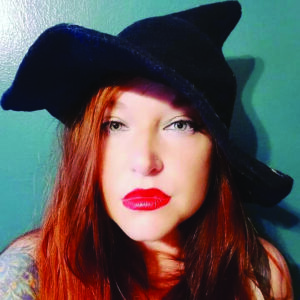by Chris Reeder-Young | photos by Joan Allison
When a need is called into the universe, Shelia Tankersley listens and responds.
In 1991, she heard a call and responded by creating a pivotal and unique non-profit called Loving Arms. This organization was a lighthouse and sanctuary for mothers with high risk infants who needed support, resources, and friendship. This cosmic call-and-response evolved and changed over time, but it always served the families who needed the help the most.
While working in corporate America, Shelia began a spiritual path at Unity Church. “We focused on visualizations, empowerment and serving.” She started working with mentors who helped her step into levels of strength and awareness through fire walking. “If I know I can walk on hot coals, I can do anything.” She placed that new belief system into actions and deeds that served others; the problem, though, was that she wasn’t sure how or where to serve.
Like many from that generation, Shelia had lost a dear friend to AIDS. “That person was always the wind beneath my wings, and I prayed to hear the greatest need so that I could respond and serve. Then it hit me, there were high risk infants who needed extra support while they were in the hospital nurseries.” Shelia searched for an organization that allowed volunteers to hold high-risk infants born with HIV.
“I couldn’t find an organization, so with the help of friends, I started a non- profit to serve these children, and eventually, their mothers. I quit my job, and the universe delivered volunteers and connections to the Med.”
Shelia worked to create grant support, federal social services dollars, corporate support, private donations, and partnerships with St. Jude, University of Tennessee, and Le Bonheur to create a sustainable, health-centric family environment for the most at-risk mothers who needed wrap-around support for their children.
Loving Arms included a Center that hosted nutritional classes, support groups, holiday events, fundraisers, education, and childcare. It became an epicenter for stakeholders, doctors, educators, ministers, attorneys, and faith-groups in the community to share their expertise.
“The Center and our organization was meeting needs for so many women, but it was also creating an extended family and opportunities. Because of economics and transportation, so many women had never had access to socialize and connect with others; it was always about surviving. Volunteers and board members would host fun outings, meals, or things that the women hadn’t experienced before.”


These deepening experiences supported families as they worked on job opportunities, education, health, and emotional wellbeing. Shelia was able to fund vans that helped mothers and children get transportation to medical appointments, grocery stores, enriching outings, DCS appointments, and to the Center. The organization wasn’t just holding the infants and children who needed support, it was lovingly holding the families through practical and holistic support.
In 2004, federal dollars associated with the Ryan White Act, were shifted to specifically medical services. This left the organization, which was focused on social services, to be harshly financially impacted. Loving Arms closed. Shelia donated items to Hope House and encouraged the volunteers to continue serving in other ways. Over the years Shelia stayed connected to the mothers, parents, and has been a part of their pivotal moments. “So much of what we did made us unique and innovative; it’s not just support group and holding babies. There’s always someone else who is willing to help you. There will always be people out there who want to support others. There is so much confidence, joy, and compassion that are parts of normalcy and human decency that everyone should have access to.”
Shelia went through a year of grief after the organization closed but believed that everything happens for a reason. She got a call from the rape crisis center for a job. “I took the job, and I knew Loving Arms prepared me for the crisis center. I was the first person they saw after the trauma, I knew I could help and comfort them.”
She served for five years; but, another call was being made into the Universe. Shelia listened. She resigned to care for a family member who was ill with cancer. “So much of my personal spiritual path, my love, compassion, and what I had learned from Loving Arms and the crisis center helped me serve someone endlessly dear to me who was making their transition into death.”
2020 has rocked the globe in ways that remind us that calling out into the Universe and being able to give and receive may be our most precious gift. Shelia shares that as she returns to her meditations, prayers, visualizations, and her bravery of walking both real and proverbial hot coals, that most times the greatest gift is empathy for ourselves and others.
Shelia and her partner Chris Sinnock have been together for 24 years. They were grand
marshals at Pride in 2013. “It was so much fun and so joyous to see so many people celebrating,” she said. “I’ve learned people appreciate gifts like listening, encouragement, and kindness. If I hear about a need, then I do my best to connect someone to resources and people. We should check on people who may be lonely, especially elderly people impacted by HIV. We were there when people started getting sick from AIDS.”
She shares how significant support is for older generations. “We are lucky to have a large gay community here who hosts senior events and dinners so we can stay connected and supported. Older people have so much wisdom and value. Aging goes fast, there are so many things that I wish I would have asked my mother, so I tell the younger generations to ask older generations now.”
Before closing, I asked her for her a nugget of Shelia’s Superhero Wisdom, something this writer has been grateful to receive over the years. She shared, “we can all serve in a way that makes another person’s life a little bit better. It doesn’t always take a whole lot, just a willingness.”




